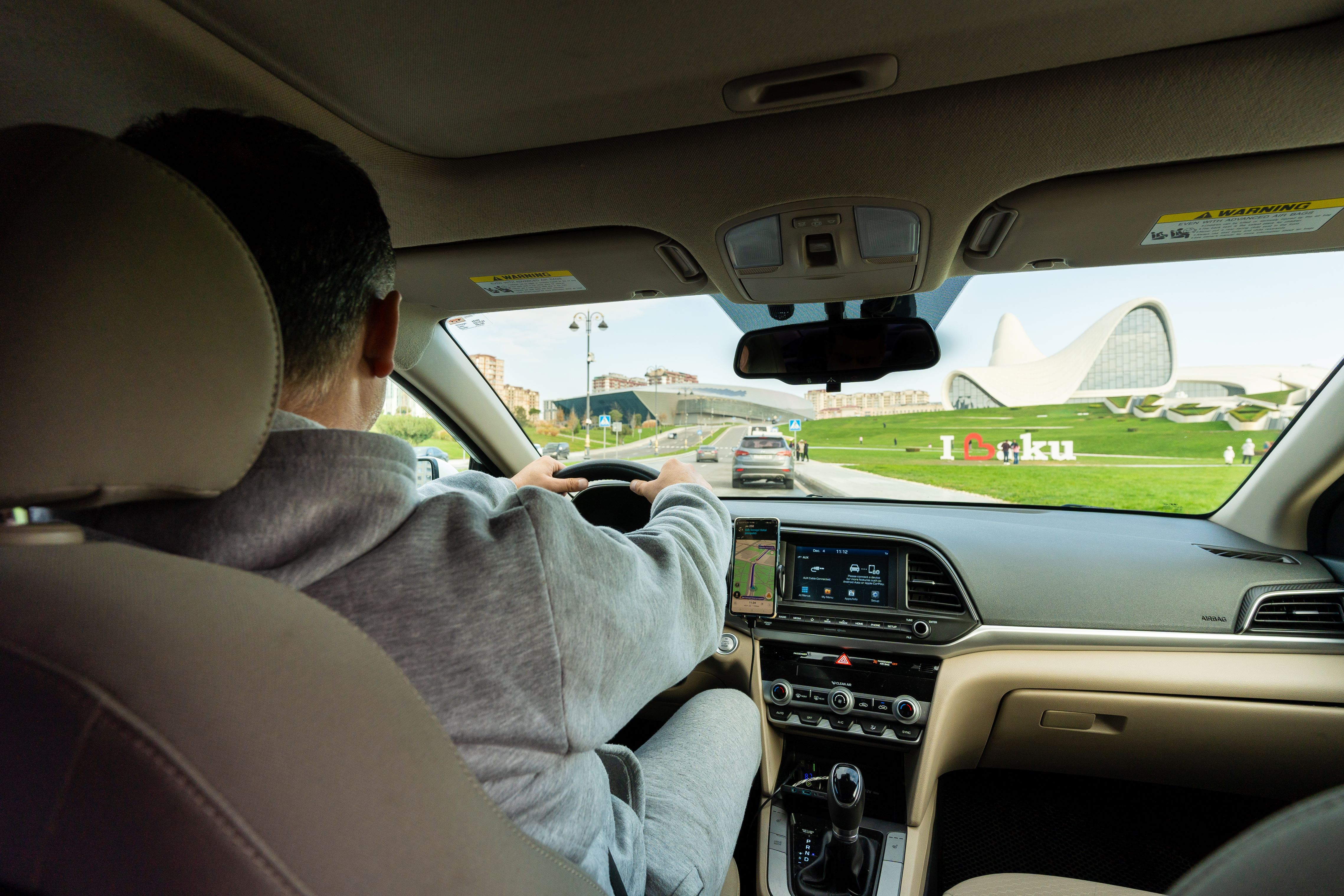Driving towards a better future: Afghan refugees in Azerbaijan achieve self-reliance
Driving towards a better future: Afghan refugees in Azerbaijan achieve self-reliance

For Khalid*, a refugee from Afghanistan living in Azerbaijan since 2017, life has been a relentless test of resilience. Born in Kabul in 1980 amidst the backdrop of war, Khalid grew up witnessing conflict that seemed endless. “I opened my eyes to war,” he recalls. Despite the turmoil, he pursued a degree in law and managed to secure a good job. However, escalating threats to his personal safety forced him to flee his homeland with his wife and four-year-old son.
The family’s journey to safety was fraught with uncertainty. After spending three weeks in Delhi awaiting visas, they arrived in Baku via Dubai in 2017, hoping to rebuild their lives in peace. The initial years in Azerbaijan were particularly challenging. Khalid took up construction work to make ends meet, but an injury to his back forced him to explore less physically demanding options. For the past three years, he has been driving a taxi, navigating long hours and mounting financial pressures to provide for his family.

In October 2023, stricter national regulations for taxi drivers threatened Khalid's livelihood once again. Without the necessary documentation to work legally, Khalid and other refugee drivers faced an uncertain future. “I work from 5 a.m. to 9 p.m. every day, sometimes until 11 p.m. on weekends, just to meet my family’s needs and repay the loan I took for my car. Losing my job would have been devastating,” he shared.
Recognizing the urgency of the situation, Khalid and a group of Afghan refugee drivers approached UNHCR for support. Through a coordinated effort with Azerbaijani state entities, UNHCR facilitated the process for refugees to obtain Personal Identity Numbers (PINs) and ASAN digital signatures. This pivotal step allowed Khalid and others to enroll in a five-day training program covering first aid, safety, and advanced driving skills. After successfully passing rigorous exams, Khalid received his taxi card and work permit, ensuring his right to pursue his chosen livelihood for the next seven years.
“This opportunity has transformed my life,” Khalid says. “With these documents, I finally feel like a valued and integral part of society.” The achievement not only stabilises his family’s future but also provides him a sense of dignity and inclusion.
For Khalid, every sacrifice is for his son. “I’ve lived my life seeing war. I left Afghanistan so my son wouldn’t have to live the same fate. He deserves to grow up in safety, to explore his talents, and to have a future filled with hope,” he says, his voice tinged with determination. “I dream of a life where my son can study, build a family, and be happy - a life free of uncertainty.”
UNHCR Country Representative in Azerbaijan, Bik Lum, highlighted the broader significance of Khalid’s journey. “This milestone shows what is possible when partnerships and inclusive policies come together to empower refugees,” she stated, emphasizing that it is not only Azerbaijan’s commitment to the 1951 UN Refugee Convention but also its inclusive approach that enables refugees to contribute meaningfully to their host communities.
The success of this initiative hinged on collaboration with key partners. The State Migration Service, Azerbaijan Land Transport Agency (AYNA), and the State Main Traffic Police Department streamlined processes to integrate PIN codes into driving license systems. Health certificates were obtained with support from TABIB (Management Union of Medical Territorial Units), ensuring compliance with national regulations.
UNHCR remains committed to supporting other refugees in Azerbaijan who continue to face administrative hurdles, working closely with national partners to address these challenges and ensure access to sustainable livelihoods for all.
Khalid’s story is a testament to the transformative power of partnerships and the resilience refugees demonstrate when equipped with tools and opportunities that allow them to not only survive, but to thrive. As he navigates the streets of Baku, Khalid drives not just to support his family, but steers toward a future of hope and stability.
*Name changed for privacy.









